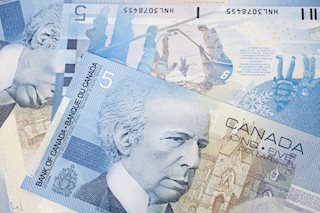USD/CAD improves to near 1.3450 as risk-off mood spurs on Middle East tension
|
- USD/CAD moves in an upward direction on risk aversion sentiment.
- Upbeat WTI prices could limit the losses of the Canadian Dollar.
- Biden administration and the US military formulate plans, including the possibility of carrying out strikes into Iran.
USD/CAD attempts to retrace its recent losses on risk aversion sentiment, improving to near 1.3450 during the Asian session on Monday. The Canadian Dollar (CAD) might have been experiencing difficulties following the Bank of Canada's (BoC) choice to hold its benchmark interest rate at 5.0% on Wednesday, marking the fourth consecutive occasion of the central bank maintaining rates at the same level.
BoC Governor Tiff Macklem signaled a change in emphasis, transitioning from the discussion of whether interest rates are adequately high to when they might be potentially lowered. According to the Bank of Canada's Monetary Policy Report (MPR), the central bank foresees inflation reaching its 2.0% target by 2025.
The upbeat Crude oil prices may cap the losses of the Canadian Dollar. West Texas Intermediate (WTI) oil price extends its gains to near $78.20 per barrel during the Asian session on Monday. WTI prices peaked at $79.19 during the early Asian hours but have since retraced some of their intraday gains. The surge in Crude oil prices was primarily fueled by concerns about potential supply disruptions following a missile attack on a fuel tanker in the Red Sea.
Furthermore, a drone attack targeted a United States (US) outpost in Jordan on Sunday, resulting in the tragic death of three US service members. In response, Biden administration and the US military are actively formulating specific plans, including the possibility of carrying out strikes into Iran. The heightened tension in the Red Sea region could provide support for WTI oil price, acting as a bolstering factor for the Canadian Dollar (CAD).
The US Dollar Index (DXY) benefits from improved US Treasury bond yields, providing tailwinds for the USD/CAD pair. In Friday's release, the US Core Personal Consumption Expenditures Price Index (PCE) for December indicated a 0.2% monthly increase, aligning with expectations and up from the previous reading of 0.1%. However, the yearly Core PCE rose 2.9%, falling short of the expected 3.0% and the previous reading of 3.2%.
The upcoming Federal Open Market Committee (FOMC) statement on Wednesday, January 31, is anticipated to maintain the Fed Funds rate unchanged at 5.25-5.50%, as per consensus. Despite this, the market's inclination toward a potential rate cut in March may exert downward pressure on the Greenback
Investors will closely monitor Tuesday's US Housing Price Index and Consumer Confidence figures for additional market insights. Meanwhile, in Canada, Wednesday's Gross Domestic Product data is expected to show a slight increase.
Information on these pages contains forward-looking statements that involve risks and uncertainties. Markets and instruments profiled on this page are for informational purposes only and should not in any way come across as a recommendation to buy or sell in these assets. You should do your own thorough research before making any investment decisions. FXStreet does not in any way guarantee that this information is free from mistakes, errors, or material misstatements. It also does not guarantee that this information is of a timely nature. Investing in Open Markets involves a great deal of risk, including the loss of all or a portion of your investment, as well as emotional distress. All risks, losses and costs associated with investing, including total loss of principal, are your responsibility. The views and opinions expressed in this article are those of the authors and do not necessarily reflect the official policy or position of FXStreet nor its advertisers.